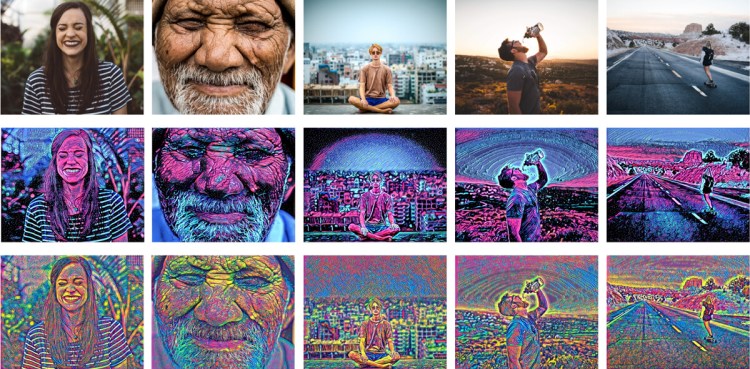Algorithm open marketplace Algorithmia today released more than three dozen stylized filters with names like alien goggles, post modern, Sunday, purple storm, and space pizza.
Made with machine learning, filters that mimic the style of any artist have earned a buzz this year due to the popularity of apps like Prisma and Artisto.
Algorithmia’s styles can be used on a computer, called upon through an API, or integrated into a bot or app. Developers can train their own machine learning and create their own AI-powered filters.
“We’re saying, ‘Hey, you can go create your own filters and then host them as services on us,'” Algorithmia CEO Diego Oppenheimer told VentureBeat in a phone interview.
Any person with a little knowledge of code can create their own stylized filters, Oppenheimer said. Algorithmia open-sources algorithms and artificial intelligence.
“I think that the general trend from our perspective is allowing anybody to do AI,” Oppenheimer said. “There’s no reason it [AI] shouldn’t be accessible to any developer on earth. If you have an AWS account and you have an Algorithmia account and kind of follow these [tutorial] steps, you’re going to be able to do it.”
Beyond photos and videos for Prisma and Artisto, neural network-influenced filters are also being brought to live video. Earlier this month, Facebook announced that it is currently testing AI-powered filters for Facebook Live videos. Prisma also said its filters can now be used on Facebook Live. Last month Google debuted its video filters that allow you to mix and match different neural network-influenced style transfers.
Here’s how Algorithmia made its stylized filters. “Based on a paper produced at the beginning of this year we used a machine and fed it one style of an image that we thought the style would transfer well, and then trained it so it goes about 50,000 iterations through the neural net training until it can actually produce what looks like a satisfactory result,” Oppenheimer said.
Each custom-made filter takes roughly 26 to 27 hours to create, but each of the filters can process photos in a few seconds, Oppenheimer said, and at larger photo sizes than the likes of Prisma or Artisto.
VentureBeat's mission is to be a digital town square for technical decision-makers to gain knowledge about transformative enterprise technology and transact. Learn More

